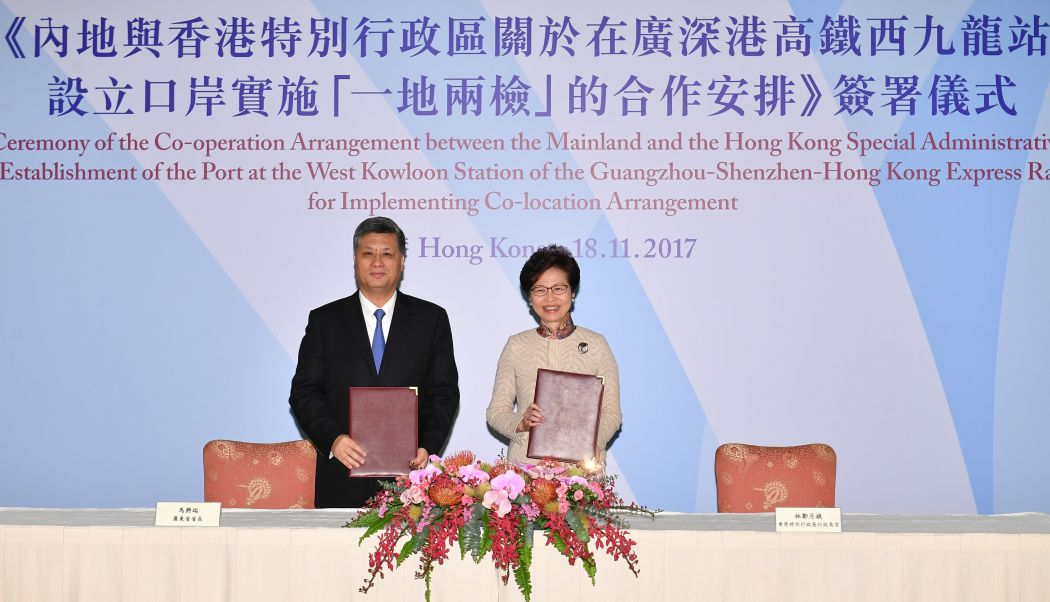Pro-democracy lawmakers have urged the government to make public the joint checkpoint agreement signed with the mainland, and reveal the current legal basis for the new mechanism.
Chief Executive Carrie Lam signed the agreement on Saturday with Ma Xinrui, governor of Guangdong Province, to implement the joint checkpoint arrangement at the West Kowloon terminus of the Guangzhou-Shenzhen-Hong Kong Express Rail Link.
However, the government said it will not make the agreement available to the public, until the National People’s Congress approves it, in respect for the top Chinese legislature and its legislative procedures. It may be approved as early as next month.

Lawmaker Tanya Chan, also a barrister, said she could not see why the agreement cannot being made public: “I can even say this reason is ridiculous.”
The government has also played down the potential use of Article 20 of the Basic Law in implementing the arrangement. Both Li Fei and Rao Geping, two top members of Beijing’s Basic Law Committee, did not state clear support for citing the Article to accommodate the mechanism.
In the original proposal made in July, Hong Kong will ask the Standing Committee to grant Hong Kong the power to “lease” part of the terminus to China. Article 20 stipulates that Hong Kong may enjoy other powers granted to it by the National People’s Congress or the central government.
Chan said Secretary for Justice Rimsky Yuen has to explain the current status of the mechanism’s legal basis: “Now it seems that the only solid legal basis is the decision by the National People’s Congress.”

The 22 pro-democracy lawmakers said in a joint letter to Lam that procedures to implement the arrangement should be suspended until questions are answered.
Charles Mok, the convener of the pro-democracy camp, said: “We are very worried the legal basis is collapsing… or even non-existent. If the government continues to hide details from the public, it will be unfair to Hong Kong’s system and the public.”
Government bills paused
Previously, the government scrapped a stamp duty amendment bill – an effort to control the property market – so that a non-binding motion over the arrangement could be passed faster at the legislature.
Chief Secretary Matthew Cheung said on Monday that the government had no plans to submit the bill again at the moment. He denied that the government was trying to allow the pro-Beijing camp time to submit proposed changes to the legislature’s rules.
“If every government bill submitted is going spark filibusters, then they will become sacrifices, and we – the government – are stuck in the middle ,” he said, adding that the schedule of submitting government bills depends on the negotiation between the democrats and pro-Beijing camp.

But Mok said the government turned back on its promise to submit the stamp duty bill after the joint checkpoint non-binding motion, and that it is rare for the government to not submit bills for weeks on end.
“The practice is clearly assisting the pro-establishment camp,” Mok said. “I am very disappointed. We wished to review this bill as soon as possible… it won’t take much time even if there is any delay, as it will pass eventually.”
